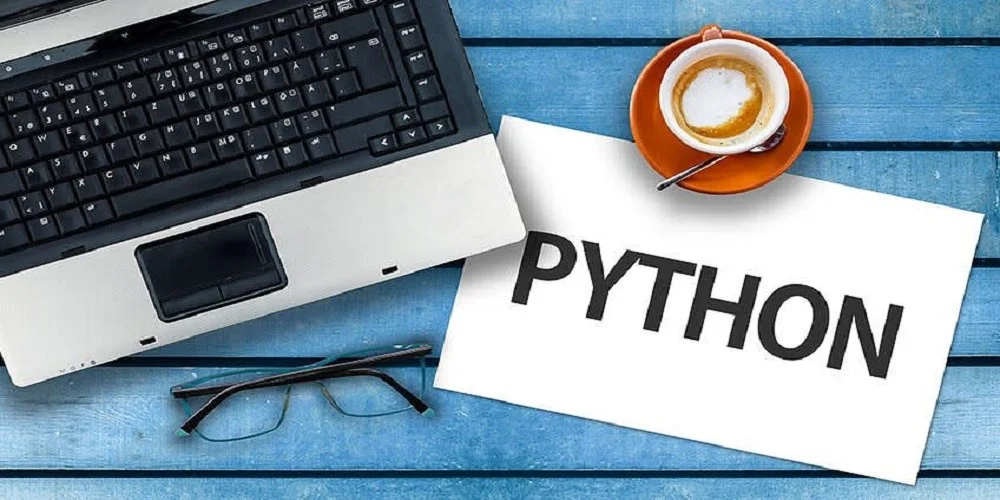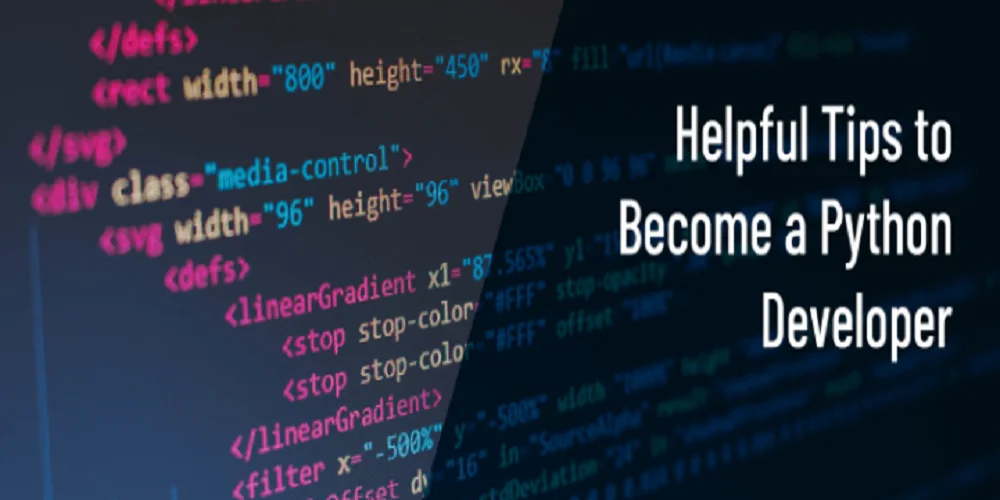
Python is an incredibly powerful and flexible programming language that has become immensely popular in recent years. The demand for qualified Python developers has since exploded, with the adaptation of digital transformation in businesses today. Becoming a Python developer opens up various possibilities, whether you are a great fan of tech or someone who is looking to switch careers. This article will discuss the skills needed for how to become a Python developer.
Why Choose a Career as a Python Developer?
Many use cases have adopted Python due to its simplicity, readability, and great libraries. They are working on exciting projects, for instance, in web development, data analysis, machine learning and automation, etc., as a Python developer. It therefore makes Python an ideal programming language among newbie programmers and experienced ones. Further, the Python community is active and helpful, for the developers have several options regarding framework and online help communities they can rely on for learning about their jobs or professions.
Skills that are Necessary to Become a Python Developer
Becoming a Python developer is impossible without specific necessary skills. First, they must have a robust grasp of the programming concepts. These factors may include different variables or data types, control structures, functions, or OOP approaches. Moreover, you need to know Python concepts like list comprehensions, decorators, generators, and context managers. Further, previously learning web technologies like HTML, CSS, and JavaScript is an advantage because it breeds compatibility with Python, which is commonly used in web development.
Also, it is important to understand interaction with databases using SQL or NoSQL. Finally, a Python developer should possess problem-solving and critical-thinking skills. The practical aspect of the projects will push you to solve your problems logically and efficiently. This is an exceptional skill for logically complex problems that break down into simple tasks in the process of finding suitable solutions in Python development services. There is a logical process to become a Python developer.
How to Become an Entry-Level Python Developer?
Step 1: Learn the Basics of Python
Secondly, familiarize yourself with the syntax of Python and its basics. It is simple to grasp the fundamentals with the help of online tutorials, and textbooks designed particularly for beginners. Even if you write such simple programs, you should still train yourself to a point where you are confident enough to undertake complicated projects.
Step 2: Build projects and collaborate
Once you become confident with your Python skills, start minor projects that can incorporate the new knowledge. Having this practical understanding will make you a better problem-solver and also help you appreciate different linkages. Equally important is to leverage open-source projects or be involved with other developers and GitHub repositories for exposure.
Step 3: Explore specialized areas
Python applies in many fields, and a venture plus specialization may lead to interesting job avenues. Begin with web development frameworks such as Django or Flask, data analysis with libraries like Pandas and NumPy, or ML and AI using tools like TensorFlow or Scikit-learn. Therefore, becoming a Python developer in a specialized domain can make you easily sought after.
Step 4: Continuously learn and improve
Technology keeps changing, hence it is important to keep up with new technology. Read Python blogs by experts, take part in online communities, attend conferences, or take relevant courses to learn more. Never cease to learn and challenge yourself to become a better developer, as Python is versatile, enabling the exploration of various verticals.
Education and Certifications for Python Developers
Even though being a Python developer does not always imply holding a formal degree, having one will add weight to your skill set, and the understanding of fundamental computations principles. You can gain a deeper understanding of programming and the algorithms in it through studying computer science, software engineering, or other related bachelor's or master’s degrees.
Beyond academic achievements, certifications can help show you know and love the job. Some popular certifications for Python developers include:
- Python Institute Certified - Python Programmer
- Microsoft Certified - Python Developer Associate
- Google Certified Professional - Data Engineer
- AWS Certified Developer - Associate
Earning these certifications shows the world that you are not only good in your profession, but also that learning is a continuous process. Nevertheless, the certification should always be considered as an addition and not a substitute that is so much valued by potential employers after practical tasks.
How to Build a Strong Entry-Level Python Developer Resume?
When using for entry-level Python developer positions, one should have a good resume. A resume builder for Python developers offers tailored templates and an easy-to-use interface to help your resume stand out. Start creating your resume today to impress recruiters.
Highlight your Python Expertise
It is written in Python and listing it as a top skill on your resume should reveal your proficiency in the programming language. Be specific about the used Python libraries, frameworks, or tools.
Showcase your Projects
Create a Projects section that describes the Python applications you have developed. Project Objectives, your role in the project, and technologies employed. Where possible, provide live demos or links to GitHub repositories that will enable potential employers to review your projects.
Emphasize Relevant Experience
So even if you have not worked before as a Python developer, display all the internships or freelance work or your projects related to show that you are dedicated and capable. Provide information on the technologies used, your mandates, and clear results.
Demonstrate your Problem-Solving Skills
Remember, Python developers are problem solvers. Provide information on your capacity to analyze intricate problems and offer practicable solutions. Provide any difficulties experienced in the course of your projects and how Python skills helped you resolve them.
Strong Teamwork and Communication Skills
In software development, there is a need to work together. Emphasize any experience of teamwork and the ability to communicate for projects. This will show that you are a team player and can add value to any working atmosphere.
As you write your resume, allude to the job requirements and make it short while highlighting key details. Utilizing online platforms that provide free CV templates can give your application a polished and professional appearance, making it stand out to potential employers. When you have an excellent resume, it will increase your chances of securing an entry-level Python developer job over the other applicants.
Tips for landing an Entry-Level Python Developer Job

While it might seem like an uphill task getting your first job as a junior Python developer, this can be done through adopting the right strategies. With these tips and determination, you can leverage them to improve the possibility of securing a job as an entry-level Python developer, hence undertakings in your career. Here are some tips to help you land your dream job:
1. Build a Strong Online Presence
Develop an informal LinkedIn profiles and translate your skills, projects, and certificates into it. Join Python-related communities and take part in discussions or open-source projects. An active online presence can make employers aware of your talent and enhance your market visibility.
2. Join Professional Associations
Participate in tech meetups, seminars, or webinars to network with expert Python developers and professionals. We can network and gain useful recommendations, potential mentors, and job references. Your career prospects can improve significantly while you are building relations with industry experts.
3. Code Challenges
Code challenges and competitions on the likes of HackerRank or LeetCode. These platforms provide multiple coding problems that help gauge your algorithmic thinking and ability to solve problems. Participating in coding challenges helps to perfect your competency and showcase your passion for coding among potential employers.
4. Prepare for Technical Interviews
Familiarize yourself with commonly asked interview questions. Learn about the company you are applying to and adjust your preparation for it. During an interview, providing enough evidence of your being a good problem-solver and technical expert will impress potential employers.
5. Be Proactive and Apply Strategically
Do not wait for open positions to be posted on the Internet. Contact the research companies that match your career goals. They may not have any available positions right now, but let them know you’re interested and send your resume. Update your resume and search for entry-level Python developer positions on online job portals, career websites, or professional networks.
What does an Entry Level Python Developer do?
As a Python developer working on various projects, depending on my specialization, I come across different daily activities. However, some common tasks include:
- Clean Code in Python: Refactoring, testing & best practices for Writing Clean, Efficient, and maintainable Code.
- Working with cross-functional teams to elicit requirements, develop designs, and deliver features.
- Finding and fixing these bugs or performance issues by debugging through code.
- Qualifying code by performing independent tests and reviews for quality, reliability, and programming standards.
- Engaging in code reviews and offering positive criticism to peers.
- Building Python Applications with Third-Party Services.
- Profiling and Refactoring: Optimizing Your Application Code.
- Keeping up with the latest Python libraries, frameworks, as well as best practices in the industry.
- Code documentation, technical specifications, and project documentation.
Python developers are always working in an agile world with other developers, designers, product managers, and stakeholders around them to deliver the best software solutions.
What is the Salary for an Entry-Level Python Developer?
Salary anticipations for new Python developers depend on such elements as the location, size of the company, and its industrial department regarding experience. Python developers who have worked can earn approximately $50,000 to 75,000. Yet, wages can reach much higher figures within tech hubs or in the specific sectors driving up demand for Python developers - like finance or artificial intelligence.
However, do not forget that salary does not represent all forms of compensation. For instance, during the evaluation of job offers evaluate healthcare, retirement plans, professional development opportunities, and work-life balance. You can as well expect to earn a lot as a Python developer provided you gain the same level of experience and expertise that other experts have in the field.
Job Opportunities for Entry-Level Python Developers

Python developers are in high demand, and positions are available across an array of industries. Monitor the job portals, companies, career websites, and professional networks for entry-level Python developer openings. Customize your applications based on how you developed the relevant skills and experiences, including work on personal projects or open-source repositories. Here are some potential job opportunities for aspiring entry-level Python developers:
Web Developer
Build and deploy web applications using Python frameworks such as Django or Flask, HTML, CSS, and JavaScript.
Data Analyst
Use Python libraries such as Pandas and Matplotlib to analyze, visualize data, generate insights, and decide.
Machine Learning Engineer
Build machine learning models with advanced functionality using Python libraries such as TensorFlow or Scikit-learn.
Automation Engineer
Develop Python-based automated workflows and scripts to eliminate manual processes, and enhance efficiency.
Quality Assurance Engineer
Use Python frameworks, such as PyTest, to write automated tests for software applications.
Junior Software Developer
Develop software applications using Python and associated technologies.
Conclusion
Choosing to be an entry-level Python developer could consequently provide a satisfying career. Armed with the right set of skills, education, and preparedness - You can set your sails for a rich employer horizon in domains from web development to data sciences and machine learning. Do not forget to upgrade your skills constantly, establish a strong online presence, and create great connections with experts in the field. You will stand a better chance of becoming an entry-level Python developer and thriving in the fast-paced field by following the proceedings outlined in this piece.
Read More: Who Hires Python Programmers?



